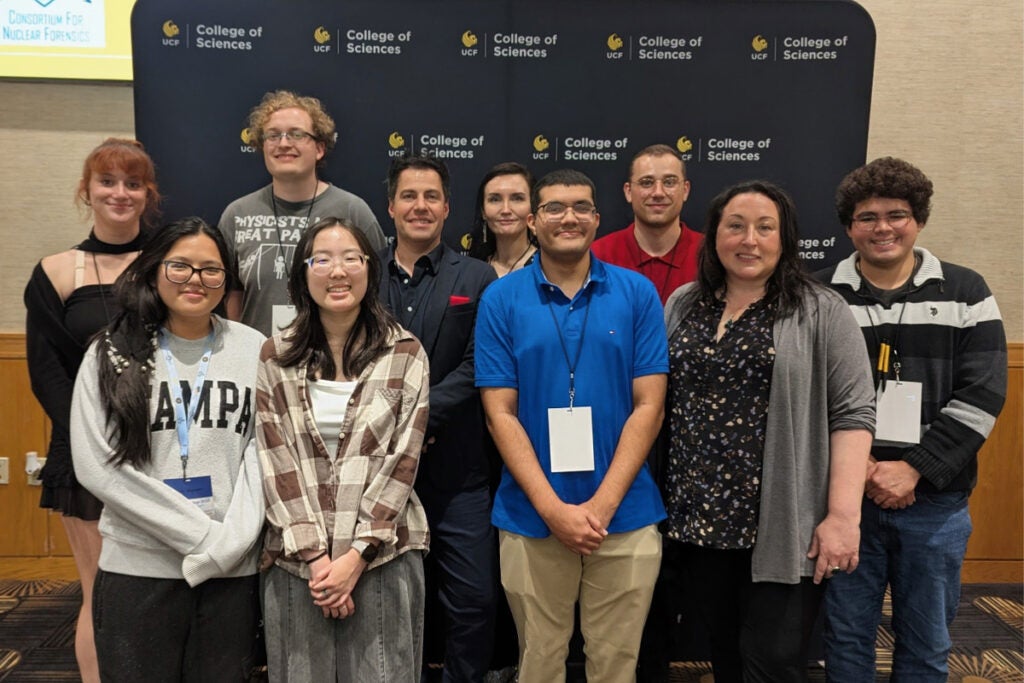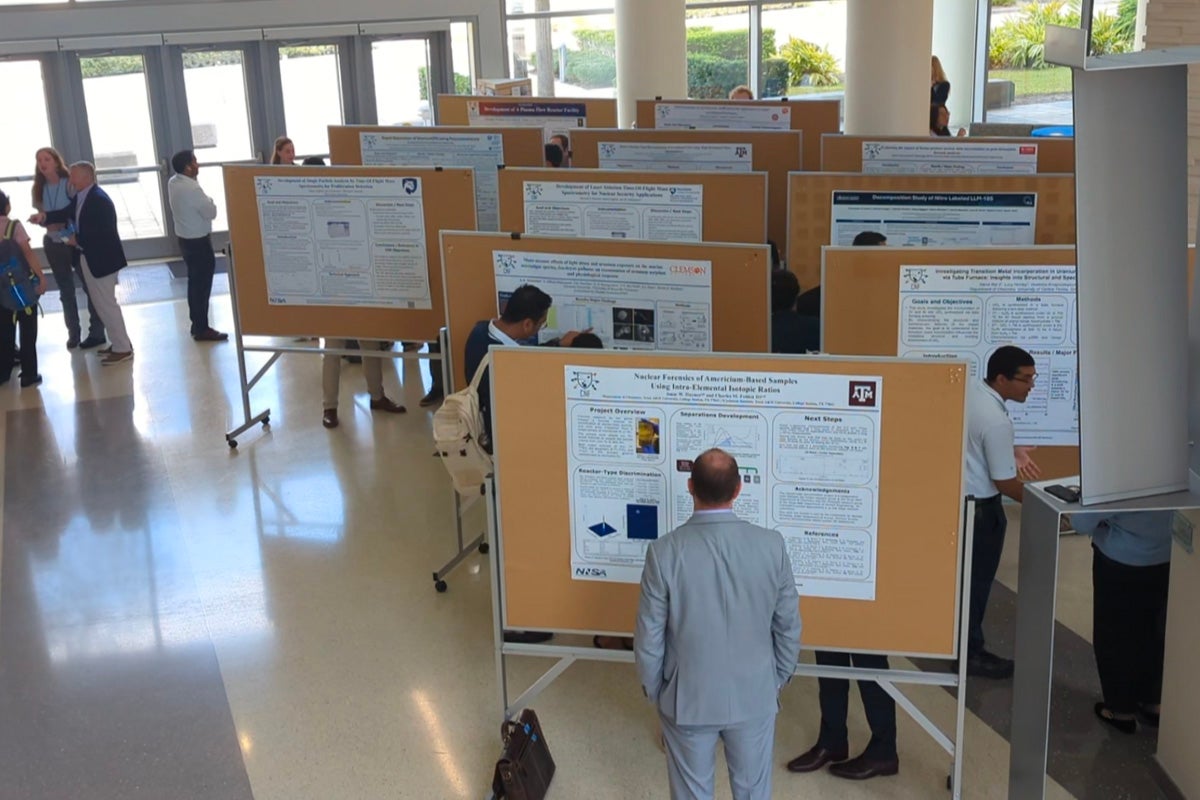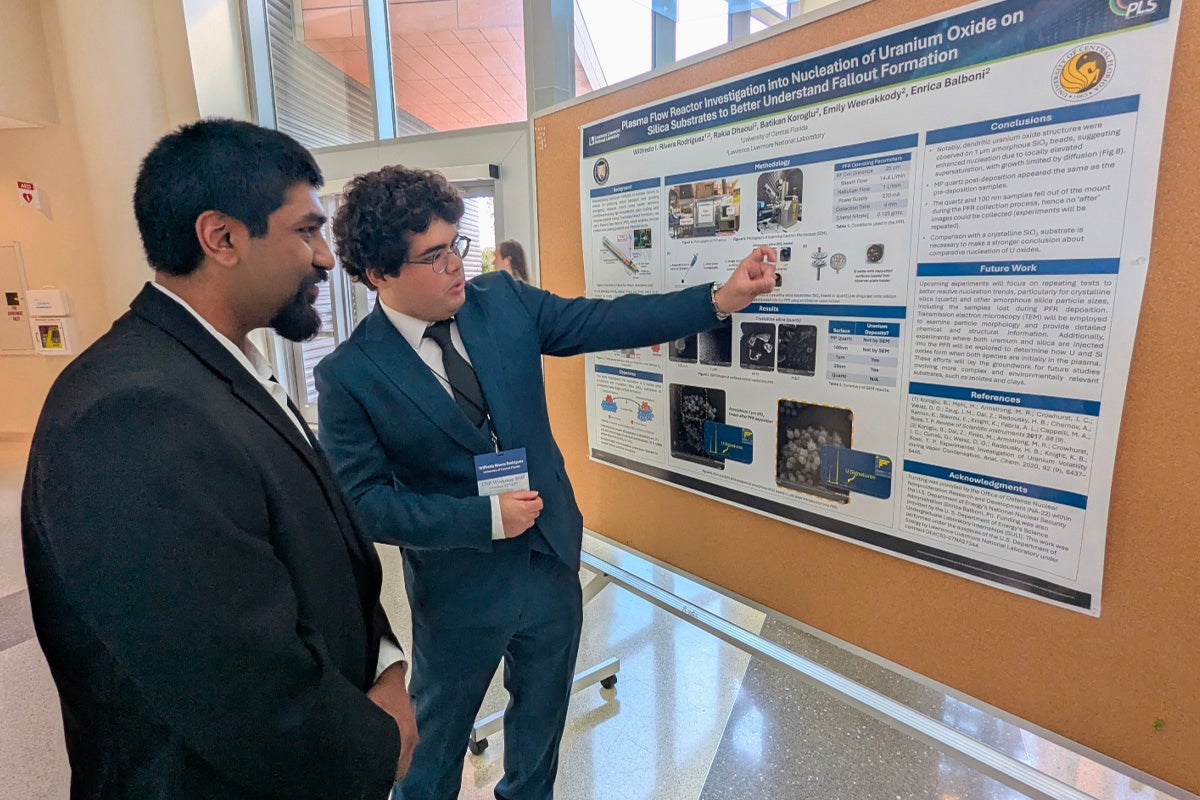UCF Researchers Lead Critical Work in National Nuclear Forensics Consortium
As one of the selected universities for the NNSA-funded Consortium for Nuclear Forensics, UCF is advancing cutting-edge research while building pathways for future security and nonproliferation experts.
By: Emily Dougherty | November 21, 2025

Researchers in the College of Sciences are playing a pivotal role in strengthening the nation’s nuclear security through their leadership in the Consortium for Nuclear Forensics (CNF). CNF brings together 16 universities and seven national laboratories to further develop nuclear forensics research, create cutting-edge technology, and prepare the next generation of experts in this critical field, as part of a competitive, multi-million-dollar award sponsored by the National Nuclear Security Administration (NNSA).
UCF recently hosted the annual CNF workshop, which included a special welcome reception, at its main campus. The workshop welcomed representatives and researchers from all 16 universities, as well as those working on nuclear forensics in the federal government.

Vasileios Anagnostopoulos, associate professor in UCF’s Department of Chemistry and CNF Deputy Lead for Ultra-Sensitive Measurements of Nuclear Materials Thrust Area, says his work aims to detect material signatures that reveal the provenance of nuclear materials — information essential to identifying materials originating from illicit or non-safeguarded processes.
“Participation in the CNF is critical to the United States’ national security,” Anagnostopoulos says. “The Consortium advances novel nuclear forensics techniques while helping reverse the decline in experts in the field by establishing a strong training pipeline.”
Deborah Penchoff, assistant professor of chemistry, who also serves as Lead of the High Performance Computing and Data Science Cross-Cutting thrust, says her team focuses on enabling High Performance Computing (HPC) and Artificial Intelligence (AI) research in support of the CNF’s five technical areas, developing and hosting HPC and AI workshops, and leading a national task force to establish best practices and standards for applying high-performance computing and AI in nuclear forensics.
Anagnostopoulos says UCF’s involvement extends across multiple leadership roles within the CNF, including leads across-cutting areas, reinforcing UCF’s position as a national leader in a critical research field.
“UCF taking technical leadership in the Consortium for Nuclear Forensics aligns with both the university’s commitment to advancing cutting-edge research and the national mission to ensure security and counteract nuclear threats. Our work directly contributes to the nation’s security in a rapidly evolving global environment,” he says.

Beyond research innovation, the CNF creates opportunities for Knights to participate in real-world national security research, secure competitive internships at national labs, and build pathways into federal careers in nuclear forensics, national security, and nonproliferation.
“Being one of the participating universities in this highly competitive consortium elevates UCF’s reputation as a top-tier research institution and strengthens long-term partnerships with national laboratories,” Anagnostopoulos says.
Through this work, UCF continues to advance scientific capability while preparing the workforce essential to protecting the nation’s security today and in the future.
